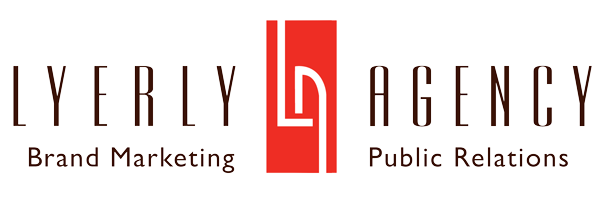As posted in The Gaston Gazette:
(3/27/16) BELMONT, N.C. – We’re familiar with the old adage “to give is to receive.” The timeless rule applies to the day-to-day lives of individuals and businesses alike. In this highly accessible, real-time digital age, consumers are more in touch with companies, their brands and their causes than ever before. Studies show that a rising number of consumers support businesses that actively engage in good social responsibility … and savvy corporations know it. When a business aligns with a nonprofit to design a smart cause-marketing strategy, both parties reap the rewards.
So what exactly is cause marketing? In a nutshell, it’s marketing that supports the company and the cause. It differs from straightforward philanthropy or corporate social responsibility in that it creates mutually beneficial results – a win for the business and a win for the nonprofit or charity. And it’s a strategy that’s gaining more momentum every year. According to a recent IEG (Independent Evaluation Group) Sponsorship Report, cause sponsorship is predicted to reach $2 billion in 2016, a projected 3.7% increase over last year. Here are five reasons to roll up your sleeves and get involved in your very own cause-marketing initiative:
- It increases brand awareness. Everyone loves a feel-good story. Studies show that press releases related to cause marketing generate far more attention than other, more typical announcements. This is your opportunity to increase your social media presence, create more advertising opportunities, sponsor events and expand your brand into new audiences. Research your chosen charitable organization and ensure the partnership makes long-term sense for your brand. Grant Garrison, managing director and co-founder of GOODcorps, says, “When companies champion a cause, their efforts often have a ‘rented’ quality. It’s time to ramp up authentic, lasting connections between companies and social impact.” Pick a great nonprofit partner and you’ll both get a boost.
- Sales go up. According to a 2015 Cone Communications study, 90% of U.S. consumers said they would switch brands to one associated with a cause if price and quality were comparable. A great cause-marketing strategy can directly improve your competitive advantage. Consider Brawny paper towels. In 2012, Brawny partnered with the Wounded Warrior Project (WWP) to create the “Inner Strength” campaign. The paper towel brand known for its toughness and resilience wanted to show its genuine appreciation for the same qualities – on a much grander scale – in our wounded veterans. The strategy paid off in both sales and awareness. According to CauseMarketingForum.com, a year into the partnership, “Brawny led volume growth in the paper towel category, reversing two years of declining share, as well as experienced a 36% increase in Brawny feature and display support at retail. The brand gained 400,000 new fans on Facebook and 21,000 new Twitter followers. 3,600 Facebook thank-you messages were generated and WWP received a $500,000 donation.” It’s a success story that epitomizes a profitable relationship, and the two continue their collaboration today.
- Customer loyalty increases, too. Consumers admire a company that thinks beyond its own welfare and actively seeks to make a positive impact in its community. When your marketing strategy engages the emotional side of the purchase process, you build loyalty as well as your bottom line. Brands like Starbucks and Subaru have forged strong customer loyalty and trust via their consistent, reliable corporate sponsorship of good causes, such as “Shared Planet” (Starbucks) and “Share the Love” (Subaru). They walk the walk and talk the talk. And their loyal fans love it.
- Doing good attracts good people. Many employees today don’t just want a paycheck; they want to feel like their work is meaningful. Unilever claims that it’s the third most sought-after employer globally on LinkedIn because of its company-wide commitment to ethics and sustainability. And millennials – who comprise a sizeable 36% of the workforce – prefer corporations that are transparent, authentic and altruistic. According to Deloitte’s 2015 millennial survey, six out of ten said a sense of purpose is part of the reason they chose their current employer. Your effective cause-marketing strategy can lure great employees and help you keep them.
- Doing good attracts investors, too. A whopping 66% of investors consider a company’s commitment to social causes before investing the first dollar. So it’s no surprise that socially responsible U.S. stocks grew 4% faster than any other national sector over the past decade. In MarketingWeek.com, Nestlé’s Senior Public Affairs Manager Hilary Parsons said, “For a company to prosper over the long term and create value for its shareholders, it must create value for society at the same time. Brand purpose is the unique benefit your business brings to the world; it’s how you make your business stronger by making the world better.”
The champions of cause marketing do more than a coin collection cup at the cash register; they’ve made their commitment to their cause an integral part of their brand culture, their brand purpose and their corporate mission. Garrison points out, “If your company’s integral values are consistent with the causes you support, then supporting a cause isn’t a marketing tactic – it’s a brand characteristic … [the] ‘cause’ is just another component of your brand’s personality, just like its utility or accessibility.” When you align your business with the right charity and develop a consistent, results-driven strategy, you’ll get big returns on the investment.
Lyerly Agency’s President and CEO Elaine Lyerly and Executive Vice President and COO Melia Lyerly share their 35+ years of marketing, advertising, public relations and brand strategy experience with readers each month in a column published by The Gaston Gazette. See this month’s edition at http://bit.ly/1URyvqf.
